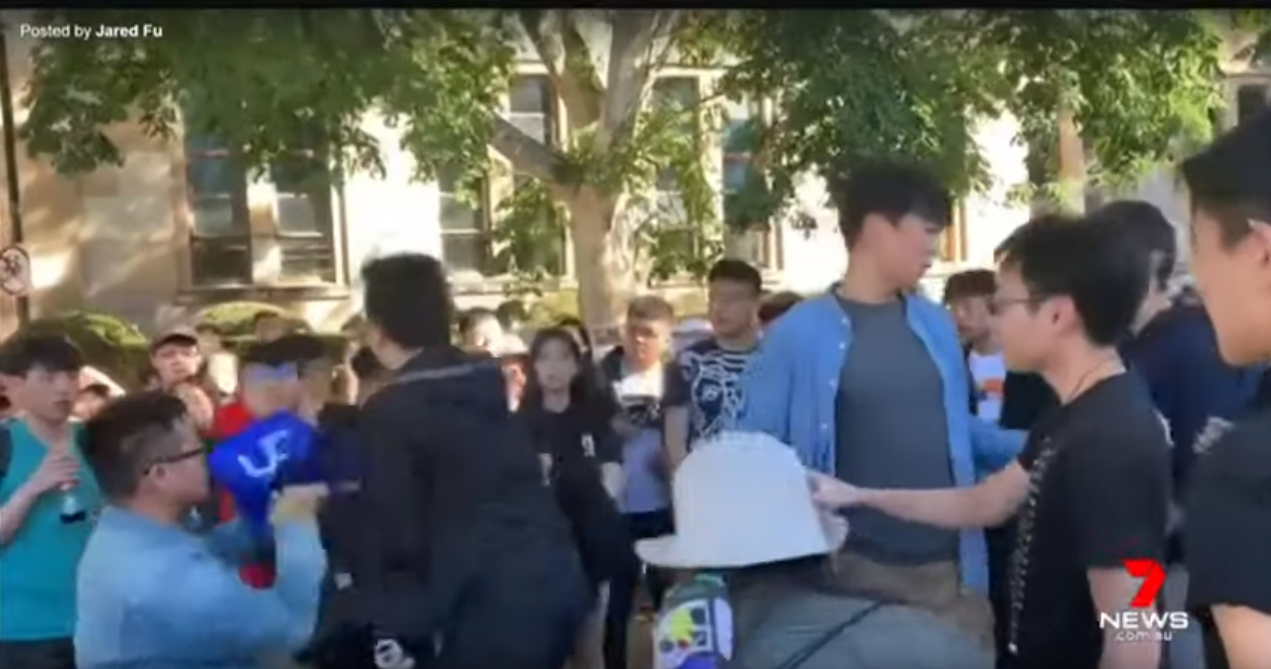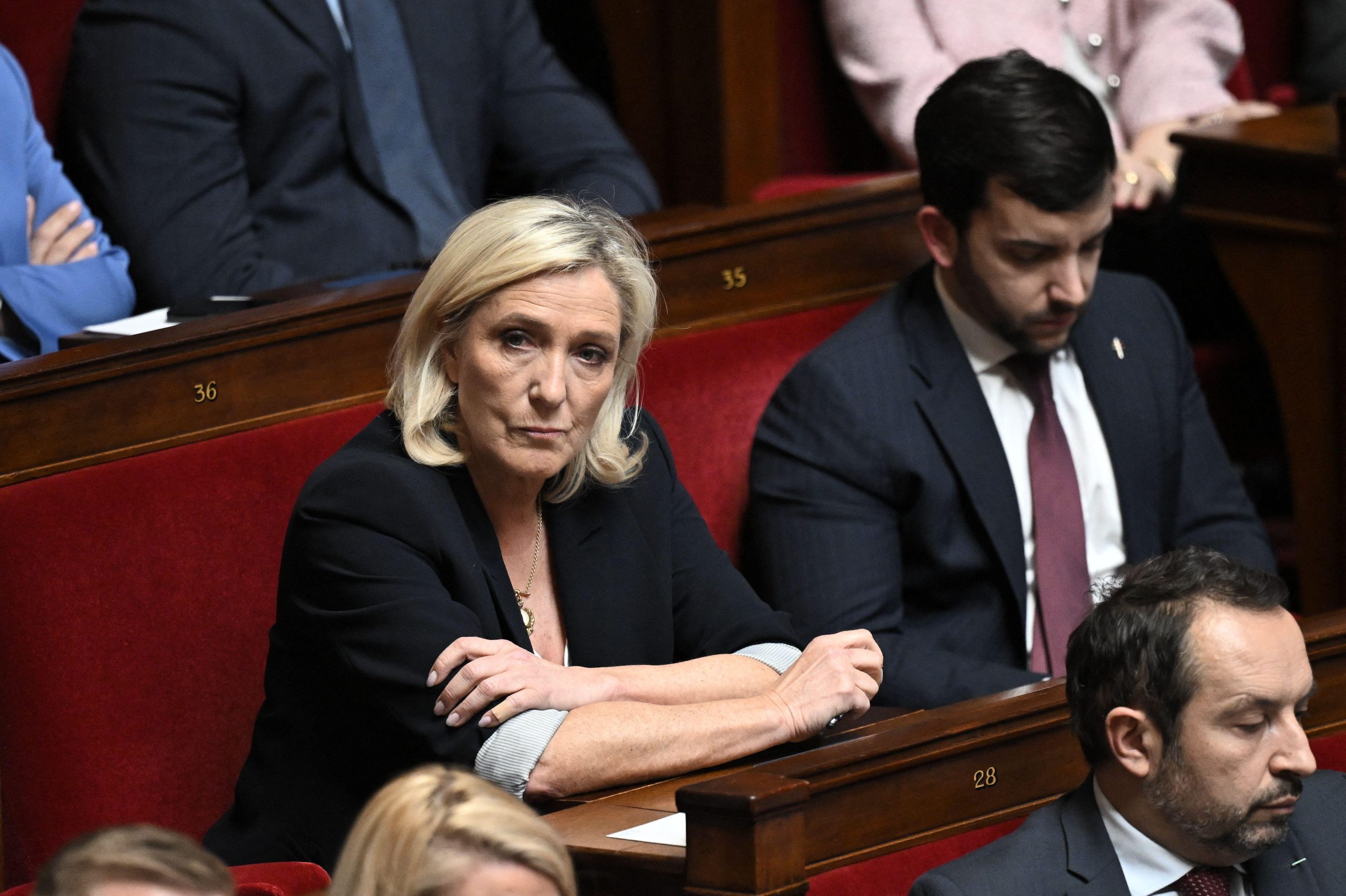[vc_row][vc_column][vc_video link=”https://youtu.be/b21faoXVpM4″][vc_column_text]“Students in the United States must be free to express their views, without feeling pressured to censor their speech…We can and will push back hard against the Chinese government’s efforts to chill free speech on American campuses.” This is what Marie Royce, US assistant secretary of state for educational and cultural affairs, said in her address welcoming Chinese students to American universities in July 2019.
As much a warning as a welcome, the speech illustrates the balancing act America and other western countries often perform when engaging with Chinese people and organisations on campus. The presence of the Chinese Communist Party on campuses severely limits the free expression of Chinese students, and threatens more broadly to curtail academic freedom, the right to protest, and the ability to engage with the uncomfortable truths about the Chinese government honestly.
To understand the situation, one must first understand the unique nature of the party apparatus. The CCP attempts to control not only China’s political arena but every aspect of Chinese citizens’ lives, at home and abroad, including on US campuses. Dr Teng Biao, a well-known Chinese human rights activist and lawyer, tells Index on Censorship: “It’s quite unique. The party’s goal is to maintain its rule inside China at all costs, and so it sets about making the world safe for the CCP. It is all-directional.”
That control looks very different abroad than it does at home. CCP does not control much of its foreign influence network directly. “It has different ways of implementing influence,” Teng explains. Some Chinese organisations “are directed by the Chinese government and don’t have much independence in making decisions.” However, other organisations, such as alumni networks and Chinese businesses, as well as Chinese students, have their own agency and goals, and operate largely independently.
Sources from US intelligence agencies to the New York Times have reported that the Confucius Institutes, which teach Chinese language skills to non-Chinese people, and the Chinese Students and Scholars Associations, which are student-led organisations that provide resources for Chinese students and promote Chinese culture, are directed by the CCP. The CSSA has worked closely with Beijing to promote its agenda and suppress critical speech. According to Royce, “there are credible reports of Chinese government officials pressuring Chinese students to monitor other students and report on one another” to officials, and the CSSA often facilitates this spying.
Similarly, the Confucius Institutes, have a history of stealing and censoring academic materials, have been accused of attempting to control the Chinese studies curriculum, and have been implicated in what FBI director Cristopher Wray recently described to Congress as “a thousand plus investigations all across the country” into possible CCP-directed theft of intellectual property on campuses.
Beijing’s influence is perhaps the most indirect and complex with regard to Chinese students themselves. The same day Royce made her welcome address, 300 Chinese nationalists disrupted a demonstration against China’s Hong Kong extradition bill at the University of Queensland, Australia, leading to violent clashes. On 7 August 2019 more violence between detractors of the extradition law and supporters of the CCP occurred at the University of Auckland, New Zealand, in what China’s consul general in Auckland calls a “spontaneous display of patriotism”. Earlier this year, Chinese students at MacMaster University in Canada, incensed by a lecture on the Chinese government’s treatment of the Uigher ethnic minority, allegedly filmed the event and sent the video to the Chinese consulate in Toronto, which denied involvement but praised their actions as patriotic. [/vc_column_text][vc_video link=”https://youtu.be/kW3c211dy8g”][vc_column_text]Speaking to Index about the Queensland protest, Dr Jonathan Sullivan, director of China Programs at the University of Nottingham Asia Research Institute, said “Many Chinese students have passionately held views and they sometimes mobilise to voice them. I don’t think it’s helpful to see such mobilisations as being the work of the party, although there is also evidence that party/state organisations sometimes provide help.” Sullivan notes, however, that their passion and convictions “are themselves a product of the authoritarian information order created by the party-state” and that “there is among Chinese students potential to react in an organised way.”
Isaac Stone Fish, a prominent journalist and a senior fellow at the Asia Society’s Center on U.S.-China Relations in New York City told Index “[The party is] very effective generally at keeping students in an ideological framework,” convincing them, for instance, that “the communist party and China are the same” and thus motivating them to protect the party. However,he agrees that students’ convictions belong to them. “It’s ok for Chinese students to feel that Beijing’s policies are correct,” he says. Problems only arise when they try to control the conversation.
As the extent of the CCP’s influence is gradually revealed to the public, there have been fears that governments will retaliate indiscriminately and restrict visas for all Chinese students abroad, or withhold them specifically from members of the CSSA. Tensions over immigration, especially in the US, mean such a reaction is possible, but as Sullivan says: “We should keep in mind that most Chinese students care about their degree and getting on in life, and we all must resist any temptation to homogenise — let alone demonise — them.” Stone Fish concurs. “There is…a danger of a racially-tinged backlash against Chinese people, which would be an ethical and strategic mistake.”
Sullivan is concerned that many universities treat Chinese students like an easy source of income instead of treating them as students with unique and pressing needs. They have that in common with the party itself. One of the biggest dangers in dealing with the CCP, explains Stone Fish, is “its willingness to use Chinese students as bargaining chips” directing them to some universities and way from others to encourage political conformity. Western institutions are vulnerable to such a tactic, Teng claims, because they “care about money more than universal values,” and “They don’t profoundly realise” that the CCP “has become an urgent threat.”
So far, the western response to the issue has been inconsistent and uncertain. “I think universities need to develop a much clearer understanding of the issues,” Sullivan says. “These can be complex and university administrators are not generally China specialists who are able to identify the nuances, which makes policy and provision inadequate and potentially unbalanced.” Going forward, Stone Fish asserts, we should be “Educating college administrators about how the party works,” and “having universities work together.” Cooperation is essential, because “Beijing prefers to negotiate one-on-one,” but as a bloc, Universities have leverage of their own.
Demand for western education in China is strong and continues to grow, especially among the Chinese elite and middle class. However, universities can only use that demand to resist pressure from the CCP if they coordinate their response. Stone Fish concludes, “I think the greatest danger is giving in to Beijing’s demands not to have certain speakers, or allow the party to prevent certain voices from being heard.” [/vc_column_text][vc_basic_grid post_type=”post” max_items=”4″ element_width=”6″ grid_id=”vc_gid:1566913121795-e09fc4f8-7d31-10″ taxonomies=”8843″][/vc_column][/vc_row]





